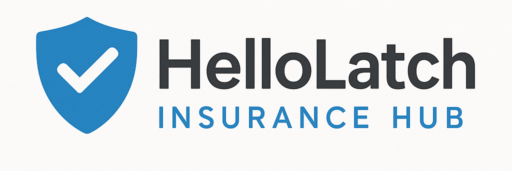 🏥 Introduction: What Is an HSA?
🏥 Introduction: What Is an HSA?
A Health Savings Account (HSA) is a unique type of savings account that lets you set aside pre-tax money to pay for qualified medical expenses. It’s available to people with a high-deductible health plan (HDHP) and offers flexible benefits that can reduce your tax bill and increase your healthcare savings.
For freelancers, gig workers, or anyone self-employed, an HSA provides both immediate savings and long-term value.
👥 Who Is Eligible?
To qualify for an HSA, you must meet the following requirements:
- Be covered by a high-deductible health plan
- Not have additional health coverage (aside from dental or vision)
- Not be enrolled in Medicare
- Not be someone’s tax dependent
Once you meet these criteria, you can open an HSA through many banks or online financial providers.
⚙️ How Does It Work?
Here’s how an HSA functions in practice:
- You contribute pre-tax dollars into the account
- The funds can grow through interest or investments
- You can spend tax-free on eligible healthcare expenses
Importantly, funds roll over year after year. Plus, the account stays with you—even if you change jobs or insurance plans. In other words, it’s portable and flexible.
💰 Key Benefits of an HSA
An HSA isn’t just about saving money—it’s a strategic financial tool. Let’s look at why.
✅ Triple Tax Advantage
You get three major tax benefits:
- Contributions are tax-deductible
- Growth is tax-free (via interest or investment gains)
- Withdrawals are tax-free if used for qualified expenses
As a result, this makes an HSA one of the most tax-advantaged accounts available.
✅ Long-Term Flexibility
Unlike a Flexible Spending Account (FSA), you won’t lose your balance at year’s end. Funds roll over indefinitely. Additionally, after age 65, you can even use HSA funds for non-medical expenses (though they’ll be taxed like retirement withdrawals).
📊 2025 Contribution Limits
For 2025, the IRS has set the following annual contribution limits:
- Individual: $4,300
- Family: $8,550
- Catch-up (age 55+): Additional $1,000
Therefore, it’s wise to contribute regularly to make the most of these limits.
🏷️ What Can You Use It For?
You can use HSA funds for a wide range of medical services and products, such as:
- Doctor visits and specialist care
- Prescription medications
- Dental and vision care
- Mental health services
- Physical therapy
- Over-the-counter medications and supplies
👉 Check the full IRS list of qualified medical expenses
In short, most common healthcare needs are covered.
💡 Tips for Using Your HSA Wisely
To make the most of your account, consider the following best practices:
- Contribute consistently, even small amounts help
- Track expenses and save all receipts
- Delay spending if possible, letting the balance grow
- Invest your balance once your HSA hits a minimum threshold
- Review annually during Open Enrollment
By doing this, you build a powerful tool that supports both short- and long-term healthcare costs.
👩💻 HSAs Are Ideal for Freelancers and Gig Workers
If you’re self-employed, an HSA can act as a critical safety net. Not only can you deduct contributions from your taxable income, but you also maintain control over your healthcare budget.
Since you may not have access to employer-sponsored insurance, an HSA adds flexibility and peace of mind—especially when paired with an HDHP.
🔗 Related: Freelancer Health Insurance: Affordable Options That Offer Real Coverage
🎯 Final Thoughts
So, what is an HSA? Simply put, it’s one of the most versatile and tax-smart ways to manage your healthcare costs. From tax deductions to long-term investment potential, an HSA empowers you to take control of your medical finances.
If you’re eligible, don’t wait—start building your healthcare safety net today.

